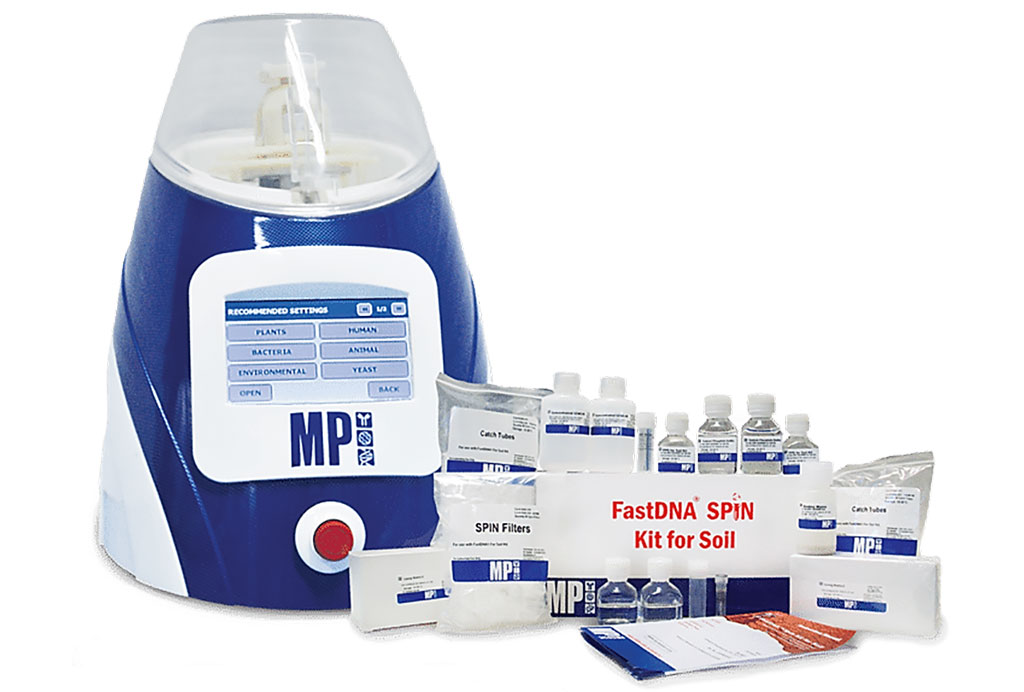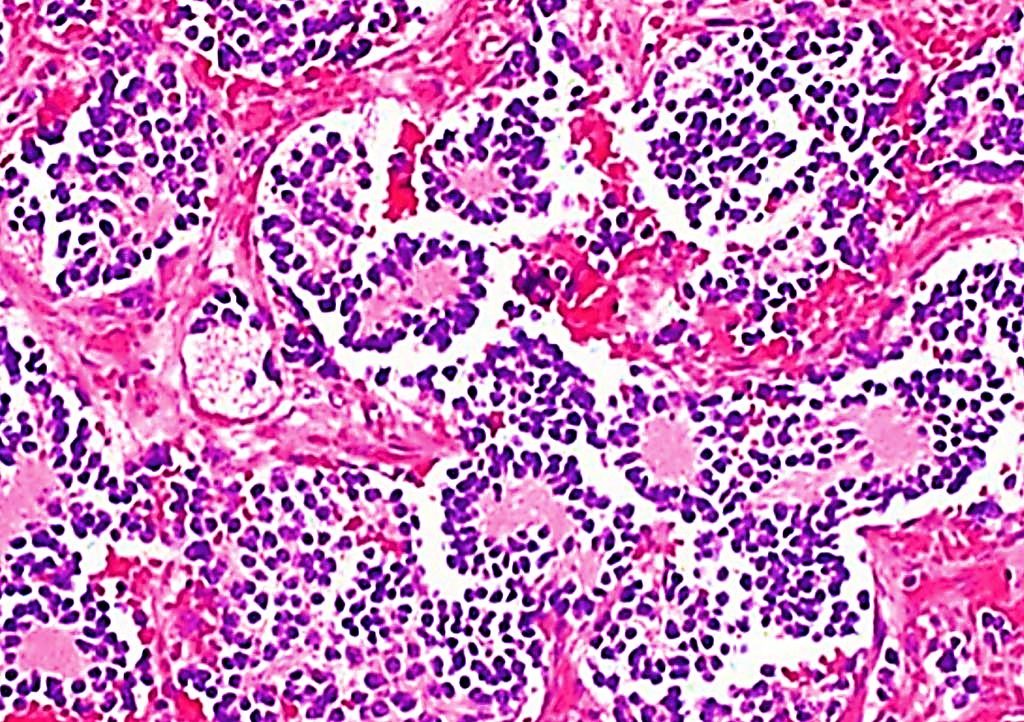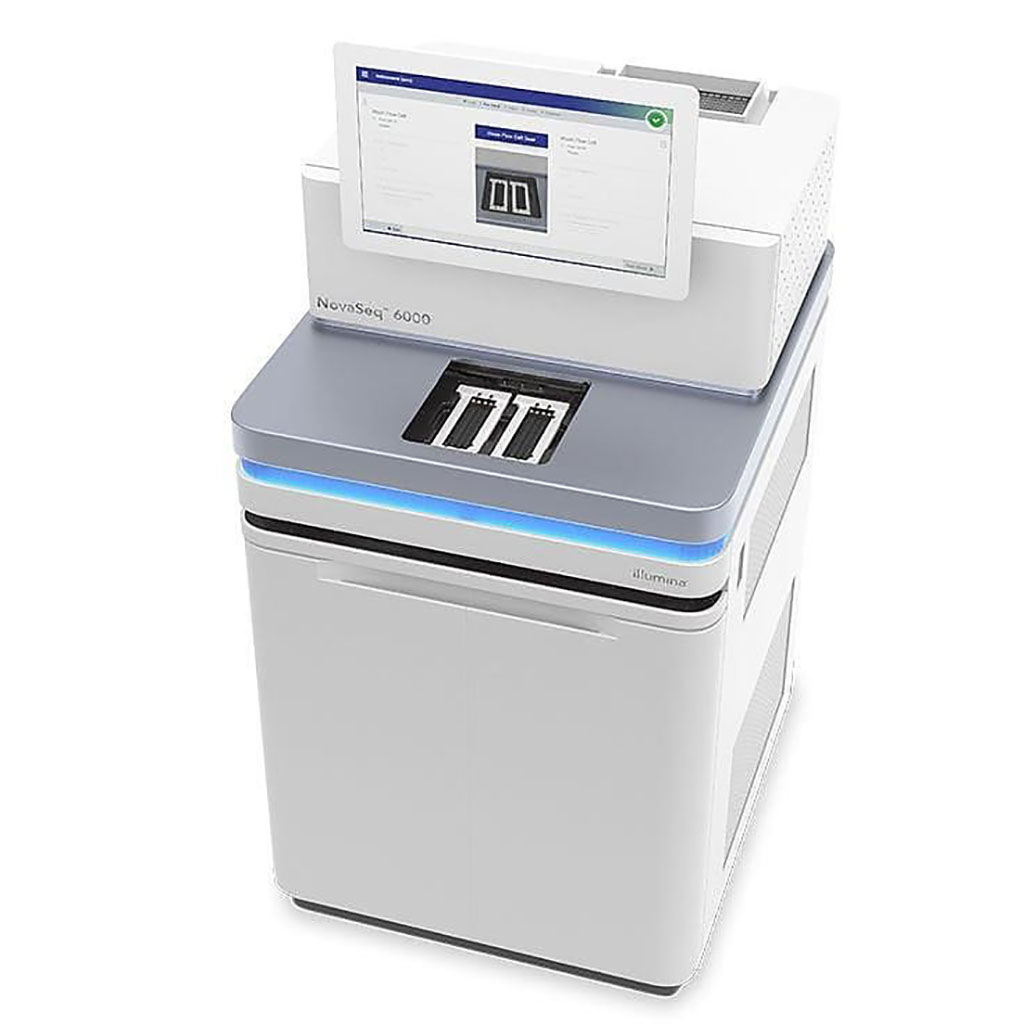Molecular Diagnostics

Parkinson’s Disease Patients Have More Inflammatory Bacteria in Their Noses
Parkinson’s disease (PD) is a complex neurodegenerative disease characterized by nigrostriatal degeneration resulting in bradykinesia, rigidity, tremor, and gait dysfunction. Non-motor symptoms are also typically present, including depression, constipation, and alteration of smell. Diminished sense of smell (hyposmia), is a common hallmark of prodromal PD. More...29 Dec 2021

Certain Protein Ectodomains in Cerebrospinal Fluid Are Diagnostic Biomarkers for Autism
Abnormally low levels of a protein biomarker, which can be detected in the cerebrospinal fluid (CSF), have the potential to be the basis for diagnosis of autism and related neurological disorders. More...27 Dec 2021

Bacterial Communities Diverge in The Lower Airways of CF Children
Chronic airway infection and inflammation resulting in progressive, obstructive lung disease is the leading cause of morbidity and mortality in people with cystic fibrosis (CF). Culture-independent, molecular approaches have broadened the view from a few individual pathogens to more complex and dynamic polymicrobial communities. More...23 Dec 2021

![Image: How epigenetic mechanisms can affect health (Photo courtesy of [U.S.] National Institutes of Health) Image: How epigenetic mechanisms can affect health (Photo courtesy of [U.S.] National Institutes of Health)](https://globetechcdn.com/mobile_labmedica/images/stories/articles/article_images/2021-12-20/GMS-096B.jpg)

Genomic Screening Can Identify Risk for Amyloid Cardiomyopathy
Transthyretin amyloidosis (ATTR) a is a rare, progressive disease characterized by the abnormal buildup of amyloid deposits composed of misfolded transthyretin protein in the body’s organs and tissues. ATTR can be hereditary and lead to a spectrum of other diseases and conditions, including cardiomyopathy, a common precursor to heart failure. More...15 Dec 2021

In Other News
Rapid Biopsy Approach Shortens Time Required to Diagnose HPV-linked Head and Neck Cancers
Targeted RNA-Sequencing Panel Detects Gene Fusions in Solid Tumors
A Device for Rapid and Accurate Diagnosis of Hepatitis C Infections
Biomarker Predicts Potential Benefit of Checkpoint Inhibitor Therapy for Brain Cancer Patients
Same Day Test Identifies Secondary Infections in COVID-19 Patients
A Rapid and Sensitive Lateral Flow Test for Diagnosis of Schistosomiasis
First One-Hour, Direct-from-Blood Sepsis Test Receives FDA Clearance
Liquid Biopsy Predicts Therapy Response in Patients with Late-Stage Throat Cancer
Serum MicroRNA Panel Predict P-Tau/Aβ42 in CSF in Alzheimer's Disease
Biomarkers Predict Disease Progression for Patients with Late-stage Brain Tumors
Siemens Introduces New Intelligent, Integrated IVD Solutions Virtually at EUROMEDLAB 2021
Blood and Saliva Samples Can Be Used to Detect Genetic Markers for Liver Cancer
Next-Generation Sequencing Impacts All Aspects of Myelodysplastic Syndrome Care
Simple Urine Test Detects Urothelial Cancers in Lynch Syndrome Patients
Same Day DNA Sequencing-Based Test Identifies Secondary Infections in COVID-19 Patients
AI Combined with Genomic Surveillance Beats Humans at Detecting Infectious Disease Outbreaks in Hospital Settings
Novel Protein Biomarkers Linked to Risk of Developing Type I Diabetes
Next-Generation Sequencing Strategy Validated for MRD Monitoring in Multiple Myeloma
POC System that Requires Single DNA Molecule for Rapid Detection of Multidrug-Resistant Pathogens Unveiled at MEDICA 2021
Icomes Lab Demonstrates World's Smallest and Lightest Electronic Pipette for PCR Testing at MEDICA 2021
Bosch Exhibits Vivalytic All-in-One Analyzer for PCR Rapid Tests at MEDICA 2021
Men with Certain Pathogenic Variants Had a Higher Incidence of Prostate Cancer
Co-Diagnostics Introduces Its Revolutionary Coprimer Technology at MEDICA 2021
Genetic Testing channel of LabMedica brings the latest in molecular genetics, cytogenetics, and epigenetics, and methods from PCR to FISH, and more.










